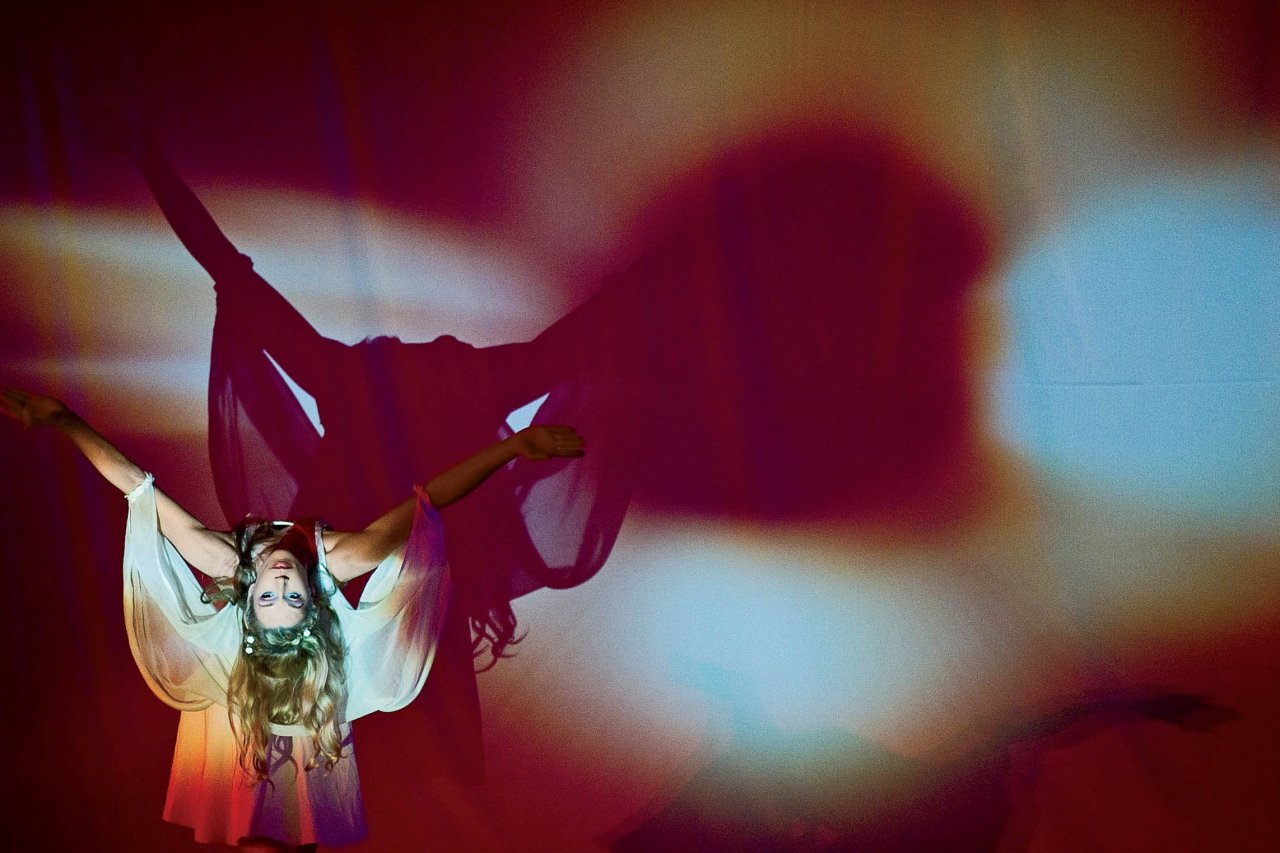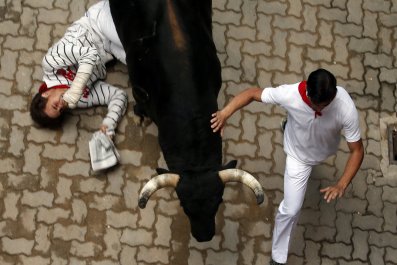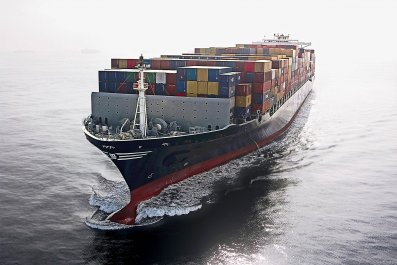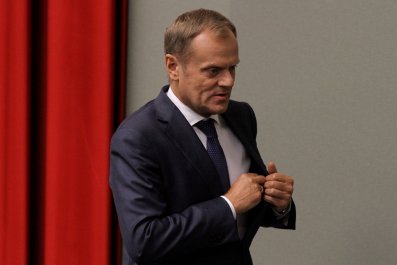The city of Magdeburg, some one and a half hours west of Berlin, isn't the sort of place that features in international cool city rankings. Still, each year a steady stream of highly qualified young North Americans, Scandinavians, Dutch, Italians, Russians, South Koreans, Japanese and Latin Americans make their way here in pursuit of a high-flying career.
They're opera singers. "Today there are fewer opportunities for young singers in America, so Americans are again coming to Germany in larger numbers," reports Karen Stone, general manager of the Magdeburg Theatre, which this season features a roster of 12 German and 14 international singers. "Plus, Eastern Europe has opened up, and lots of young singers are coming here from those countries now. And 20 years ago, the great number of South Korean and Chinese singers we have now didn't exist. There were just a few Japanese singers." Because the EU doesn't issue specific opera visas and EU residents can move freely, there are no immigration statistics documenting the singer influx, but opera houses contacted for this story all confirm the trend.
The attraction? Steady work, full-time employment even. "Germany, Austria and Switzerland have a very large number of opera houses for their size," says Jennifer O'Loughlin, an American soprano now at the St Gallen opera in Switzerland. "And they have many more operas per season, which means you get to sing many more roles."
The German-speaking countries, as well as Switzerland's non-German regions, do indeed feature a higher opera stage density than any other region in the world. According to the Deutscher Bühnenverein theatre association, Germany boasts 83 publicly-funded opera houses, many dating back to the country's old patchwork of duchies and principalities, as well as 130 orchestras, 200 privately funded theatres and 70 music festivals, while Austria has 67 theatres – including opera houses – and Switzerland 30. France and Britain, by contrast, only have around a dozen state-funded opera houses each.
According to the opera statistics website -Operabase, last year 7,230 opera performances took place in Germany, one third of the world's total. The United States came a distant second, at 1,730 performances, followed by France and Russia. Austria ranked sixth, at 1,252 performances, and Switzerland ninth, at 795. Measured in number of performances per million residents, Austria tops the ranking at 149.8, followed by Switzerland at 102.1, Estonia and then Germany at 88.1.
As international singers are well aware, even second- and third-tier houses feature large repertoires. German opera houses alone employ 1,270 soloists and 2,870 choir members on full-time contracts. Next season's nine productions in Magdeburg include Richard Wagner's Lohengrin, a newly commissioned opera by American composer Philip Glass, and a new production of Wolfgang Amadeus Mozart's Cosí fan tutte. The National Theatre in Weimar, two hours away, will feature eight productions including Richard Strauss's 20th-century masterpiece Der Rosenkavalier. Next season in Altenburg, just over an hour from Weimar, also includes Der Rosenkavalier along with Giacomo Puccini's La Bohème and another 20th-century masterpiece, Benjamin Britten's Peter Grimes.
Modest though the setting in a city like Altenburg (population: 34,000) may be, it's hardly a surprise that young opera singers head there. "Almost everybody who's had a great career has started in Germany or Austria", says Kristine Opolais, the 34-year-old Latvian prima donna, who herself got her big break at Berlin's Staatsoper. Hans-Georg Wegner, Weimar's director of opera, points out that "international opera singers came to Germany back in the 19th century as well. But today they come from all corners of the world. And a lot has changed in the past couple of decades. Twenty years ago, it wasn't easy for a South Korean to come here, or for us to find him. Now there are competitions and agents everywhere."
Today South Korean men are an operatic mainstay in the German-speaking world. Budget airlines, in turn, have made travelling to auditions and competitions a viable prospect for even cash-strapped performers. And as Stone observes, the internet is enabling young singers to research smaller opera houses as well.
Young American singers, for their part, speak of problems getting engagements at US opera houses. "There aren't as many opportunities as there used to be for up-and-coming singers in the US," notes Irene Roberts, an American soprano who'll be joining the Deutsche Oper in Berlin as a staff soloist next year. "If you're a lesser-known name, American opera houses often don't take a chance on you because they need to sell tickets."
In Italy, the homeland of opera, the opera houses are battling acute money problems. Newsweek reported last year that Italy's opera houses are €300m in the red. "I sang at the Maggio Musicale [in Florence] two years ago, and I had to hire a lawyer in order to get paid," reports O'Loughlin.
Of course, singing in a lower-tier opera house like Halle is a far cry from performing at the Met in New York, or the Berlin Staatsoper, or the Vienna Staatsoper, or the Salzburger Festspiele, and singers at smaller opera houses earn incomes closer to those of an office worker than those of a prima donna. But whereas 200 sopranos often compete for the same role in the US, Halle's opera director Axel Köhler says he usually gets 15-30 applicants per opening, including for full-time soloists.
"In our price class, of course we're not going to get singers who perform at the Met," he explains. "But roles and ensemble positions are advertised internationally, and at our auditions we get singers from Scandinavia, Western Europe, Eastern Europe, the Balkans, the Americas and Asia. The genre of opera has become international in a way that nobody would have guessed 20 years ago. The best singers prevail, and those singers are not always from Germany."
Indeed, globalisation has turned these smaller-city purveyors of an elite art form into pioneers of integration. In Weimar, for example, only a third of the singers are German. But the operatic immigrants don't just benefit from career stepping stones in cities like Graz, Greifswald and St Gallen: they're needed there. Halle's upcoming Ring des Nibelungen – Wagner's enormous four-opera cycle – would, says Köhler, "not have been conceivable without foreign singers". Though plenty of singers graduate from local conservatories, opera directors dismiss many of them as not good enough.
"The preparation at German conservatories comes nowhere close to the training at Juilliard, Indiana University or even the Royal Northern College of Music [in Britain]," says Stone. "We all want German singers, especially because we do pieces with spoken parts, like The Magic Flute. We're in Germany, so we'd prefer German-speakers. But if we didn't have the international singers, the musical standards would be much lower."
Alik Abdukayumov, a Uzbek baritone, is pursuing a career in Weimar, the centre of Germany's literary tradition. "In other EU countries there are opportunities as well", he explains. "But opera in Germany and Austria has tradition, and it's secure." Earlier, Abdukayumov spent five years in Austria. There's another thing he likes about singing here: "Audiences are grateful, and they like musical theatre. Here things are not as stressful for a singer as in Italy. Audiences are not going to boo you if you're not in top form, so you don't tremble before each performance."
In Germany, opera is defying rumours of the art form's imminent demise. While attendance dropped in several German states over the past four years, it increased in others.
According to Austria's national statistical agency, between 2011 and 2012, opera attendance grew by 3.8%. Switzerland doesn't measure opera visits, but in a national survey, 66.1% of residents said they regularly go to the theatre, opera or museum. In Germany, whose multitude of theatres and opera houses goes back to its patchwork of independent duchies and principalities, private contributions account for just €400m of musical institutions' income, compared to €2.4 billion in public funding. According to EU statistics, Germany spends 0.8% of its GDP on "recreation, culture and religion", while Austria spends 1%. The EU average is 1.1%.
That public-private imbalance understandably irks some taxpayers, but its stability for performers attracts foreign talent. And after several years in Greifswald, Graz or St Gallen, young Violettas and Don Giovannis have a better shot at the big league. Singing in Germany, says Roberts, is also a seal of approval. "When I return to the US," she explains, "people will say, "'she must be good, she's sung at the Deutsche Oper'."






























